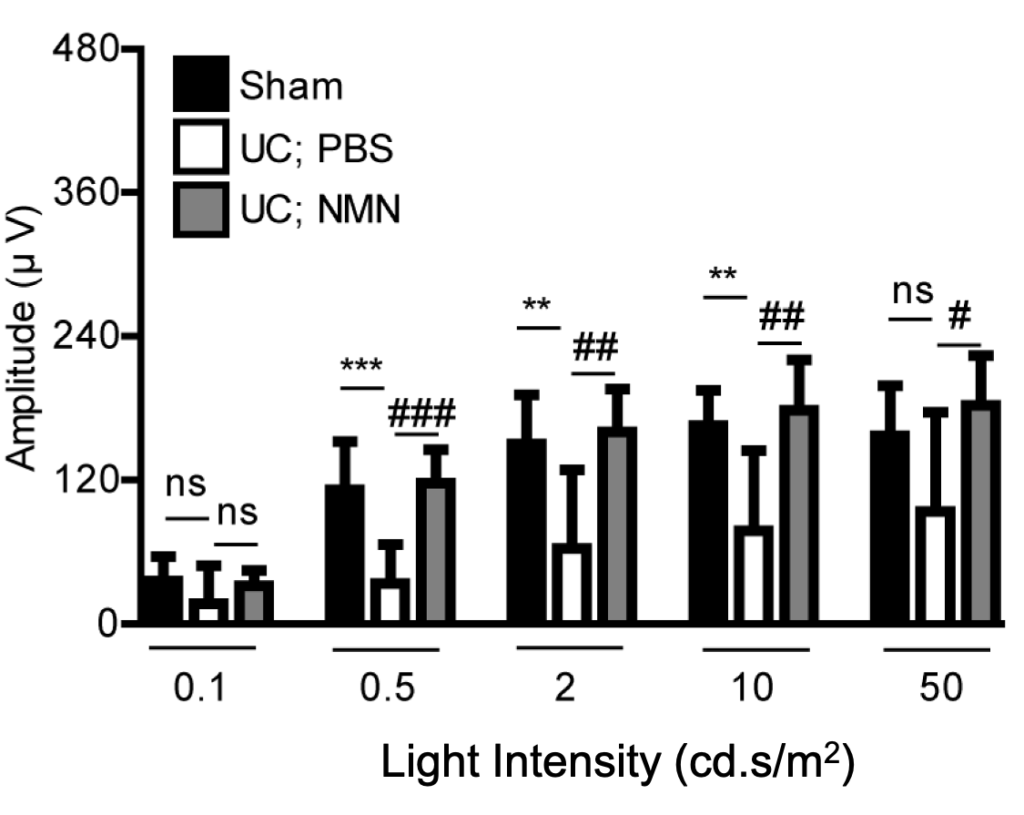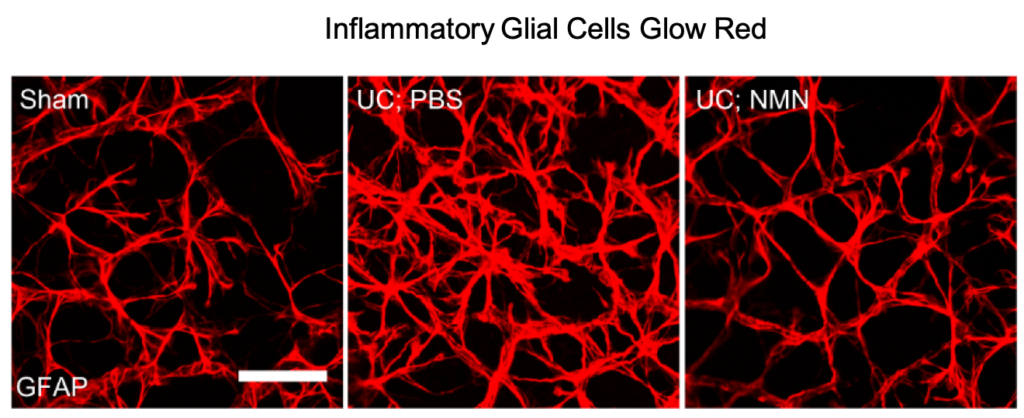NMN Maintains Eye Function and Activates Antioxidants Following Injury
Japanese scientists preserve retinal function, increase antioxidant activity, and reduce inflammatory glial cells with NMN following cardiovascular injury in mice.
Highlights:
- Supplementation with NMN prevents retinal dysfunction due to artery occlusion.
- NMN increases antioxidant production following occlusion.
- Treatment with NMN reduces inflammatory glial cell activation, suggesting reduced scarring.
As we age, we are more likely to suffer from cardiovascular complications, which can lead to retinal dysfunction. The retina – the part of the eye responsible for receiving light signals – is very susceptible to injuries induced by blockages along the carotid artery – the artery that supplies blood to the brain. However, a new study may have uncovered an easy-to-take supplement that could help preserve retinal function.
The study, out of Keio University in Tokyo, published in the International Journal of Molecular Sciences, focused on male mice given supplemental nicotinamide mononucleotide (NMN) following surgery to block blood flow through one of the carotid arteries. The mice were injected with NMN daily for a week following surgery. Experiments looking at retina and eye function showed that retinal function improved with NMN treatment. Additionally, NMN preserved retinal NAD+ levels, activated antioxidant genes, and reduced the activation of glial cells — central nervous system (CNS) immune cells that, when activated, promote inflammation and scarring.
“Although further understandings on the mechanism of action of NMN therapy in retinal ischemia are desired, we suggest that NMN supplements can be one of the promising therapeutic strategies for protecting against ischemic retinopathy based on our brief observations,” the scientists wrote.
NMN Prevents Retinal Dysfunction Induced by Vascular Injury
The scientists performed carotid artery occlusion surgery on adult male mice and injected them with 500 mg/kg/day of NMN. NMN treatment significantly reduced the retinal dysfunction induced by carotid artery occlusion. Retinal function was measured by the strength (amplitude) of electrical waves produced by the retina in response to light.

Cardiovascular dysfunction and blood vessel occlusion are often accompanied by oxidative stress – cellular stress caused by reactive oxygen molecules. NAD+ has been shown to help alleviate oxidative stress, and supplementing with NMN, an NAD+ precursor, has been shown to increase NAD+ levels. Along those lines, Lee and colleagues demonstrate how NMN replenishes NAD+ in the retina following occlusion surgery. NMN was also shown to increase an antioxidant gene known as Nrf2.
Glial cells support the CNS, including the eyes and brain. In response to injury, glial cells are activated to aid in recovery. However, these activated cells can also cause inflammation and scarring, preventing CNS tissue regrowth in the injured area. NMN was shown to reduce this scarring in the retina following occlusion surgery. Pro-inflammatory glial cell signaling molecules were also reduced with NMN.

Can NMN Help Preserve Vision following Injury?
Lee and colleagues show that NMN helps reduce the retinal dysfunction seen with carotid artery occlusion. This study suggests that NMN could positively affect the eyes of patients suffering from cardiac dysfunction and retinal ischemia, which may be partly due to its antioxidant effects. Other studies have shown that NMN can prevent and protect against retinal damage in other retina-related injuries and diseases, such as glaucoma, age-related macular degeneration, retinal ischemia, and degenerative retinal detachment, further indicating that NMN supplementation may help preserve retinal function.
The evidence points towards NMN having positive effects on retinal damage, but given the differences between mice and humans, more research is needed before NMN becomes a viable therapeutic option for those suffering from retinal dysfunction, whether due to injury or age.

